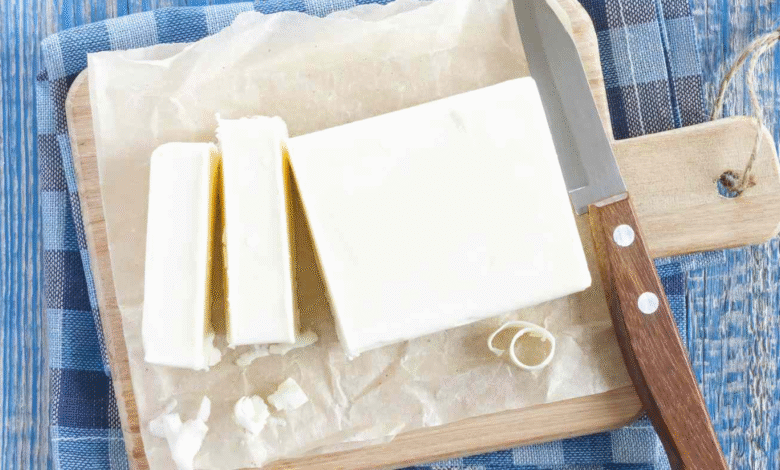Can You Freeze Cream Cheese? Expert Tips, Uses, and Everything You Need to Know

Wondering can you freeze cream cheese? Learn the best freezing methods, how to thaw it, and the perfect recipes for using frozen cream cheese without losing flavor or quality.
Cream cheese is one of those staple ingredients most of us keep in the fridge for quick breakfasts, baking projects, and creamy dips. But there’s always that moment when you buy more than you need or forget about a block sitting in the back of your fridge. That’s when the big question pops up: can you freeze cream cheese?
The short answer is yes, you can freeze cream cheese. However, the long answer comes with some caveats. Freezing cream cheese isn’t as straightforward as popping it in the freezer and expecting it to come out exactly the same. There are changes in texture, flavor, and usability that you need to know about before making the decision. In this article, we’ll break it all down so you know exactly what to expect and how to make the most out of frozen cream cheese.
Understanding Cream Cheese Before Freezing
Cream cheese is a fresh, soft cheese made primarily from milk and cream. It has a smooth, spreadable texture and a slightly tangy flavor that makes it versatile for both sweet and savory dishes. Unlike aged cheeses such as cheddar or parmesan, cream cheese is high in moisture. That’s important because high-moisture foods tend to undergo noticeable changes when frozen.
When cream cheese is frozen, the water inside forms ice crystals. These crystals disrupt the creamy structure, leading to a grainy or crumbly texture once it thaws. This doesn’t make the cream cheese unsafe to eat, but it can change how you use it in recipes. That’s why understanding its composition is the first step to answering the question: can you freeze cream cheese and still enjoy it?
If you’re freezing cream cheese, you’re essentially trading convenience for texture. The flavor holds up well, but the smoothness you’re used to might not come back once it’s thawed. That said, there are still plenty of creative and practical uses for frozen cream cheese.
The Best Way to Freeze Cream Cheese
If you’re going to freeze cream cheese, you’ll want to do it right. Packaging is key here. Leaving it in its original foil wrapping and unopened box is usually the best option. The foil provides a barrier against freezer burn, and the cardboard helps protect it further.
If you’ve already opened your cream cheese, transfer it into an airtight container or wrap it tightly in plastic wrap followed by aluminum foil. Removing as much air as possible helps preserve both taste and texture. You can even portion it out into smaller servings before freezing, so you only thaw what you need later.
It’s also worth noting that freezing doesn’t extend the shelf life of cream cheese indefinitely. While it can last in the freezer for up to two months, the sooner you use it, the better the quality will be. Beyond that, the changes in texture become much more pronounced.
How to Thaw Cream Cheese Properly
Once your cream cheese has been sitting in the freezer, thawing it correctly makes a big difference. The best method is to move it from the freezer to the refrigerator and let it thaw slowly overnight. This gradual process helps minimize the texture changes.
If you’re in a hurry, you can soften frozen cream cheese by placing the sealed package in a bowl of lukewarm water for a short time. Just be careful not to overdo it, as rapid temperature changes can make the texture worse. Avoid thawing it in the microwave unless you’re planning to use it immediately in a cooked dish.
After thawing, you’ll notice that the cream cheese may look grainy or separated. Don’t panic. Giving it a good stir or even blending it with a mixer can help restore some smoothness. While it may not be perfect for spreading on a bagel anymore, it’s still excellent in many recipes.
When Frozen Cream Cheese Works Best
Here’s the good news: frozen and thawed cream cheese still shines in cooked or baked dishes. Think casseroles, soups, sauces, and baked goods like cheesecakes or muffins. The slight change in texture won’t matter once it’s blended with other ingredients and heated up.
For example, if you’re making a creamy pasta sauce, thawed cream cheese melts beautifully into the mix. The same goes for dips or spreads where it’s mixed with other dairy products or seasonings. Frozen cream cheese is less ideal for fresh applications like spreading on toast, but it can still play a valuable role in your kitchen.
So the next time you wonder, can you freeze cream cheese and actually use it later, remember that it’s not about eating it straight from the freezer. It’s about finding the right recipes where the texture doesn’t make a difference.
Creative Recipes Using Frozen Cream Cheese
Here are a few recipe ideas that work wonderfully with frozen cream cheese:
| Recipe Idea | Why Frozen Cream Cheese Works Well |
|---|---|
| Baked Cheesecake | Texture changes disappear during baking |
| Creamy Pasta Sauce | Blends smoothly when heated |
| Hot Spinach Dip | Perfectly creamy after baking |
| Muffins or Breads | Adds richness without affecting texture |
| Casseroles | Melts into the dish seamlessly |
“Frozen cream cheese is like a secret ingredient—you just need to know where to use it.”
By focusing on cooked and baked recipes, you’ll not only avoid texture issues but also get the most value out of cream cheese that might have otherwise gone to waste.
Can You Freeze Cream Cheese Frosting?

Another related question that pops up is about frosting. Cream cheese frosting is a staple for carrot cakes, red velvet cakes, and cupcakes. But can you freeze cream cheese frosting the same way?
Yes, cream cheese frosting actually freezes better than plain cream cheese. Because it’s mixed with powdered sugar and sometimes butter, the structure holds up much more effectively. After thawing, you may need to give it a quick whip to bring back its fluffy consistency, but otherwise, it tastes just as good.
This makes freezing cream cheese frosting a great way to save time during busy baking seasons. You can make a big batch, freeze portions, and always have frosting ready when the baking urge strikes.
Tips for Making Frozen Cream Cheese More Usable
If you find your thawed cream cheese too grainy for your liking, there are a few tricks to improve it:
- Whip it: Use a hand mixer or stand mixer to whip the thawed cream cheese until it regains some creaminess.
- Add moisture: Mixing in a bit of milk or cream while whipping can help smooth it out.
- Use it in blends: Combine thawed cream cheese with other ingredients like sour cream, yogurt, or mayonnaise for dips and spreads.
These simple adjustments can make thawed cream cheese feel closer to the fresh version.
Common Mistakes When Freezing Cream Cheese
Even though it’s possible, freezing cream cheese isn’t foolproof. Here are some common mistakes people make:
- Freezing it too long: After two months, the texture degradation becomes significant.
- Not sealing properly: Air exposure causes freezer burn and affects flavor.
- Expecting fresh-like results: Thawed cream cheese won’t be identical to fresh, so manage your expectations.
Avoiding these mistakes ensures that your frozen cream cheese experience is positive rather than disappointing.
FAQs on Freezing Cream Cheese
Can you freeze cream cheese in its original packaging?
Yes, if it’s still sealed, the original packaging is usually the best option. It provides protection against freezer burn.
Does freezing change the taste of cream cheese?
The flavor remains almost the same, but the texture changes, becoming more crumbly or grainy.
Can you freeze flavored cream cheese?
Yes, flavored varieties can also be frozen, but expect the same texture changes. Some added ingredients may also separate slightly.
How long can you freeze cream cheese?
It’s best to use frozen cream cheese within two months for the best quality.
Can frozen cream cheese be used for bagels?
Technically yes, but the texture will be less smooth. It’s better used in cooked dishes or baking.
What about whipped cream cheese?
Whipped cream cheese tends to freeze and thaw better than regular blocks, since the airiness helps mask texture changes.
Conclusion
So, can you freeze cream cheese? Absolutely—but with some expectations in check. Freezing cream cheese is a smart way to reduce waste and save money, especially if you plan to use it in cooked or baked dishes where texture doesn’t matter as much. While thawed cream cheese might not spread as smoothly on a bagel, it remains a versatile ingredient for cheesecakes, sauces, casseroles, and dips.
If you freeze it properly, thaw it carefully, and know when to use it, cream cheese can be just as valuable from the freezer as it is from the fridge.





